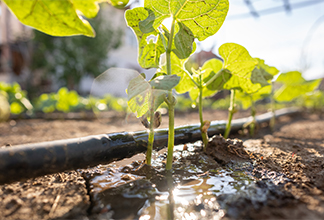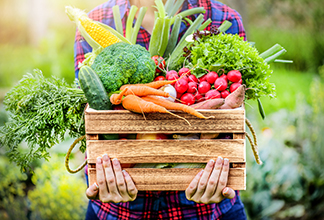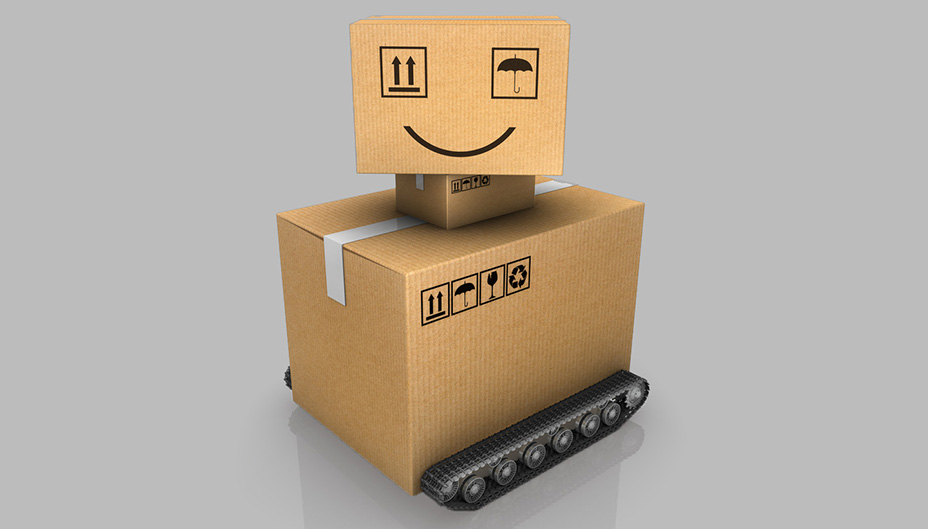Will a Delivery Robot Soon Be at Your Door?
Written by Peter Nowak
Published on October 9, 2019
minute read
Share:
If Summer 2019 is to be remembered for anything, technologically speaking, it might just be as the time autonomous delivery robots became a thing.
August saw a flurry of activity. In one month alone, e-commerce giant Amazon received clearance to begin testing its Scout robots in Irvine, Calif.; logistics company Postmates got San Francisco's blessing to pilot its Serve robots; and Starship Technologies announced $40 million (U.S.) in series A funding to expand its efforts.
Coca-Cola, in conjunction with Switzerland-based TeleRetail, also announced it was rolling out delivery robots at a theme park in England.
In September, the University of Pittsburgh and Purdue University in Indiana became the latest college campuses to allow San Francisco-based Starship's robots, joining George Mason University in Virginia and Northern Arizona University. The company plans to expand to 100 campuses over the next two years, with the goal of making robotic delivery an expectation with younger people.
Heading into the fall, autonomous delivery robots may very well continue to be on a roll. Besides the above participants, competitors including San Francisco-based Marble, Mountain View, Calif.-based Nuro and Memphis-based courier giant FedEx, among others, are aiming for a piece of the pie.
According to a January 2019 report by analysis firm MarketsandMarkets, the fledging industry is expected to grow from $11.9 billion in 2018 to $34 billion by 2024.
The robots — small, cooler-sized machines on wheels — can typically pack 10 to 20 kilograms of goods in a secured cargo hold and motor along on sidewalks at speeds of around five kilometres an hour. They use GPS, cameras and other sensors to autonomously navigate, with providers charging users a few dollars per delivery.
The end user generally receives an alert on their phone that their delivery has arrived, at which point they punch a custom passcode into the machine's touchscreen to unlock the cargo.
Companies have used the robots to deliver a range of goods, from pizzas and groceries to coffee and diapers. In most tests so far, jurisdictions have required human operators to follow the robots closely as a safety measure, but providers believe they will ultimately be entirely autonomous and independent.
Proponents say the robots will help solve a number of issues, such as a lack of adequate parking options in busy, urban areas. Critics, however, say the machines will simply move congestion from streets to sidewalks, where they are required to share space with pedestrians.
It's a bit early to say if delivery robots will catch on widely or not, but there's no doubt they've captured the imaginations of everyone from investors to college and amusement-park administrators. Have they caught your imagination?
RBC Direct Investing Inc. and Royal Bank of Canada are separate corporate entities which are affiliated. RBC Direct Investing Inc. is a wholly owned subsidiary of Royal Bank of Canada and is a Member of the Canadian Investment Regulatory Organization and the Canadian Investor Protection Fund. Royal Bank of Canada and certain of its issuers are related to RBC Direct Investing Inc. RBC Direct Investing Inc. does not provide investment advice or recommendations regarding the purchase or sale of any securities. Investors are responsible for their own investment decisions. RBC Direct Investing is a business name used by RBC Direct Investing Inc. ® / ™ Trademark(s) of Royal Bank of Canada. RBC and Royal Bank are registered trademarks of Royal Bank of Canada. Used under licence.
© Royal Bank of Canada 2025.
Any information, opinions or views provided in this document, including hyperlinks to the RBC Direct Investing Inc. website or the websites of its affiliates or third parties, are for your general information only, and are not intended to provide legal, investment, financial, accounting, tax or other professional advice. While information presented is believed to be factual and current, its accuracy is not guaranteed and it should not be regarded as a complete analysis of the subjects discussed. All expressions of opinion reflect the judgment of the author(s) as of the date of publication and are subject to change. No endorsement of any third parties or their advice, opinions, information, products or services is expressly given or implied by RBC Direct Investing Inc. or its affiliates. You should consult with your advisor before taking any action based upon the information contained in this document.
Furthermore, the products, services and securities referred to in this publication are only available in Canada and other jurisdictions where they may be legally offered for sale. Information available on the RBC Direct Investing website is intended for access by residents of Canada only, and should not be accessed from any jurisdiction outside Canada.
Explore More

How Soil Carbon Can Become Canadian Farmers' Next Cash Crop
Sustainable practices may mean untapped profits for Canadian farmers, says RBC Economics and Thought Leadership.
minute read

Hitting Net-Zero Means Rethinking How Canada Grows (and Buys and Eats) Food
Top takeaways from a discussion about the climate challenges and solutions that can be found in farming.
minute read

Diversity in Tech: "I Think This Is the Time," Says Lightspeed CEO
Key takeaways from a conversation on Black representation in a recent episode of Disruptors, an RBC podcast.
minute read
Inspired Investor brings you personal stories, timely information and expert insights to empower your investment decisions. Visit About Us to find out more.







